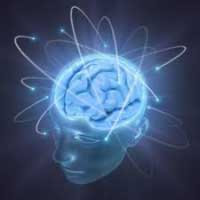
What is the Federal Reserve and what does it do? – an animated guide
http://www.guardian.co.uk/business/interactiv...iner-video
The Federal Reserve – the central banking system of the United States – could soon step in with a new round of actions to bolster the fragile American recovery as Europe's woes continue to rattle the US economy. But how does the Federal Reserve regulate an entire economy, and why are some people against it?
Nearly every nation in the world has a central bank in order to co-ordinate its monetary policy. President Woodrow Wilson introduced one in the United States – the Federal Reserve – in 1913, after a series of financial disasters, including the Panic of 1907, had worried people enough to deem such a body necessary.
Just like Goldilocks, the Fed’s aim is to ensure the economy’s not too hot and not too cold. To that end, the Fed’s mandate is “to provide the nation with a safe, flexible, and stable monetary and financial system”.
The Fed is a huge and complicated beast, but essentially it has two jobs: to work towards maximum employment, and to control inflation (or, for all you non-economists out there, the amount stuff costs).
As you’d expect, since its creation a century ago, the Fed’s role has expanded. These days it regulates financial institutions, and acts as a bank to the US government, foreign governments and big financial institutions. It can loan money to institutions in trouble – as it did when it leant more than $7tn in the 2008 banking bailout – and it sets monetary policy.
But how does the Fed influence the economy?
Two ways: first, it can pump more money into the financial system if the economy appears to be slowing, or cut down the money supply if the economy seems to be overheating.
Second it can also raise or lower interest rates. When the Fed lowers interest rates it makes borrowing cheaper, which is supposed to stimulate the economy by getting businesses – and people – to spend money. Similarly, when interest rates go up, borrowing becomes more expensive, and the economy cools.
Sure, the Fed has its admirers, but not everyone wants to take it to the prom. Ron Paul – Republican Representative of Texas and sometime presidential candidate – is one of its fiercest critics, claiming the Fed is given the green light to create “money out of thin air”. In Ron Paul’s ideal world only gold and silver would be legal tender.
And it’s not just Republicans who have a problem with the central bank. On the left, many charge that the Fed has inflated bubble after bubble – most recently, the disastrous housing boom – and shown little ability to clean up the resulting mess when, inevitably, the bubble bursts.
Current Fed chairman Ben Bernanke has taken much of this criticism on board. He’s been on a charm offensive over the last 18 months, trying to make the Fed more accountable as it prepares to celebrate its centenary, but not everyone’s convinced.
http://www.guardian.co.uk/business/interactiv...iner-video
